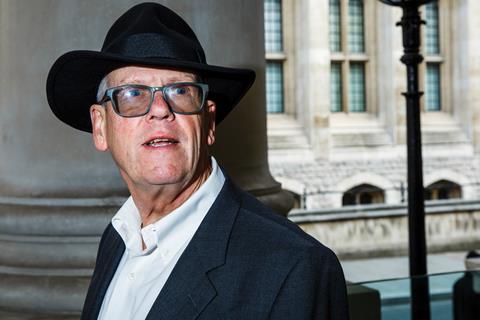The runaway growth of collective proceedings has prompted a rearguard action from business lobbyists. Developments in landmark cases including Mastercard and Apple may also slow the juggernaut

This autumn, it will be exactly 10 years since the Consumer Rights Act ushered in a new class action regime by allowing opt-out collective proceedings over infringements of competition law. The landscape has certainly changed: according to the Class Representatives Network, set up in 2023 by former financial ombudsman and high-profile class representative Walter Merricks CBE, 44 claims under the new regime have so far been filed to the Competition Appeal Tribunal (CAT).
The explosive growth of the new regime has prompted a fightback. Free market thinktank the Adam Smith Institute last year warned that the proliferation of claims is undermining confidence in the UK economy. Meanwhile, a new business-funded campaign group, Fair Civil Justice, is calling for government action on the funders who make mass opt-out collective proceedings possible.
However, three new decisions have raised doubts about whether the march of collective proceedings is quite as unstoppable as enthusiasts and opponents suggest.
In the first opt-out collective action to go to a full trial, the CAT in December ruled for defendant BT Group in a case brought on behalf of some 3.7 million landline customers.
Meanwhile, in a decision that sent shockwaves which are still reverberating through the sector, Merricks and defendant Mastercard announced an agreement to settle the largest opt-out claim so far, over the levels of interchange fees charged by the credit card business from 1992 to 2008. If the settlement is certified by the CAT, some 46 million potential claimants will share a reported £200m.
'The ruling raises serious questions about the current class action regime and how fit for purpose it is'
Seema Kennedy, Fair Civil Justice
What attracted the attention was not so much the fizzling out of such a high-profile action – ‘we will have achieved less than we hoped for’, Merricks said this week – but the reaction of funder Innsworth which publicly attacked the ‘premature’ settlement. Innsworth, in turn, was accused of seeking to influence the claimants’ decision-making – one of the dangers pointed out by the Adam Smith Institute.
An approval hearing is scheduled at the CAT next month.
Then, just this week, the CAT turned down an application for a collective proceedings order in a claim against Apple and Amazon regarding alleged breaches of competition law. The tribunal found that the proposed class representative had ‘not demonstrated sufficient independence or robustness so as to act fairly and adequately in the interest of the class’.
Read more
Welcoming the decision, Fair Civil Justice’s executive director, former Conservative minister Seema Kennedy, said the ruling ‘raises serious questions about the current class action regime and how fit for purpose it is’.
All this comes against the backdrop of the long drawn-out process of responding to the Supreme Court’s 2023 decision in PACCAR, which caused consternation by finding that litigation funding agreements must be structured in accordance with the 2013 regulations on damages-based agreements. The first stage in moving forward is a Civil Justice Council review of litigation funding; interested parties are busy finalising their responses to an interim report, which are due at the end of this month.
While cards are being kept close to chests, it is clear that the CJC will hear calls for formal regulation of the sector. ‘There needs to be taxpayer oversight of the funding industry,’ Kennedy said. ‘Just as solicitors are highly regulated, so should funders be.’
Although not a competition claim, one case that will keep collective actions in the headlines will be the London proceedings brought against mining giant BHP over the 2015 collapse of a tailings dam in the Brazilian state of Minas Gerais. This week the High Court has been hearing expert evidence on the application of Brazilian environmental law – a first for a UK court. Closing speeches are scheduled for 5 March. Whichever way the judgment goes, questions will be asked about the appropriate use of an overstretched court system.
For his part, Merricks has no regrets in taking up the nine-year Mastercard claim. ‘The case opened up the route for what parliament wanted to achieve [through the 2015 act],’ he told the Gazette. ‘Being the first in the field, it was inevitable that we would have to cross a lot of fences not provided for in legislation; any other claimant would have had to engage in many of the issues we had to litigate.’
Merricks’ Class Representatives Network now has 40 members, keen to pursue claims. ‘What I have done by taking this case through all the issues is to pave the way for many other cases to come forward and not have to surmount the many hurdles I had to,’ he said.
This article is now closed for comment.




































1 Reader's comment